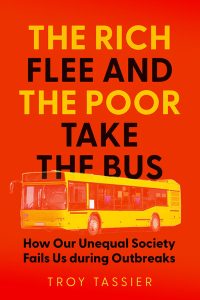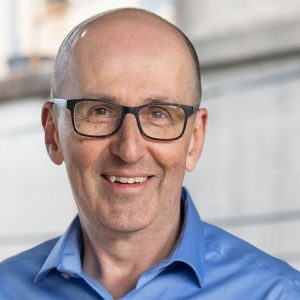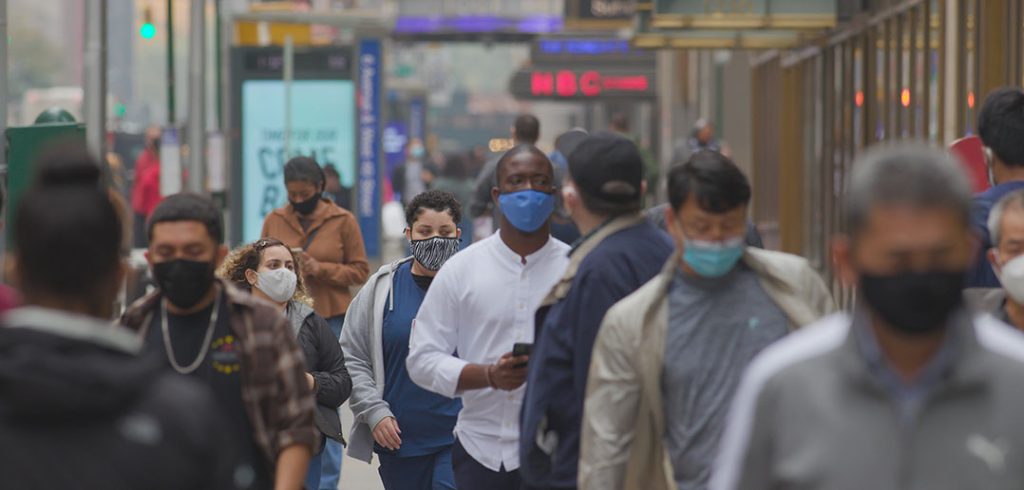
During the COVID pandemic, a story in the New York Times caught the eye of economics professor Troy Tassier, Ph.D. Using anonymous cell phone data, researchers showed that nearly 50% of residents in New York City’s wealthiest communities had left the city.
Those in poorer communities stayed for the most part, working at in-person jobs and commuting along their normal bus and subway routes. As a result, Tassier said, in the first year of the pandemic, the rate of mortality in some of the hardest hit, poorer neighborhoods was five to six times higher than it was in affluent areas in New York City.
It inspired Tassier to produce research on herd immunity and other infection-related data. In February, he published The Rich Flee and the Poor Take the Bus: How Our Unequal Society Fails Us during Outbreaks (Johns Hopkins Press, 2024), which investigates how social inequality affects epidemic outbreaks.
The book examines pandemics from the past, from the Bubonic plague that devastated Hong Kong in the 19th century to the influenza pandemic that ravaged New York City in 1918. Why was it so important to highlight this history?
At the beginning of the pandemic, there was this narrative that this was a great equalizer, but I knew it wasn’t going to be true, just from past pandemics. In New York City in the 19th century, poor people were blamed for the pandemics because they were afflicted more than wealthy people. But it wasn’t their fault; it was the conditions that they were living in. During COVID-19, we were experiencing some of the same things.
Were you surprised by anything you encountered while doing your research?

The biggest surprise was just how similar past epidemics were to what happened in 2020, down to things like fights over masks. There’s a story from 1918 about a fight between a health inspector and a person standing on the street corner who was arguing with people, telling them they were fools to be wearing masks. They ended up in an altercation, and a couple of people were shot.
I have a cousin who lives in the South who was doing curbside pickup at a store in 2021, and she was accosted by two guys who tried to rip the mask off her face.
A major point of the book is that we should treat medicine as a social science. Do you think the pandemic made that clear to people?
No, and that’s one of my biggest disappointments. You still hear refrains coming from both the left and the right that public health needs to step away from proselytizing and just “follow the science,” but part of that science is how people are reacting to policies and to each other.
Something I’ve been grappling with is, last month the CDC eliminated the five-day isolation period following a positive infection. Now, these isolation periods are regressive because they harm working people who don’t have paid sick leave or might not be able to afford childcare if their child has to stay home to be isolated.
But the CDC shouldn’t be saying there’s a problem with the regressive nature of this five-day isolation; therefore, we need to get rid of the isolation period. What they should be saying is we have these problems in society, and we need to work to get rid of this inequality.
It’s not just as simple as people raising themselves up by the bootstraps.


